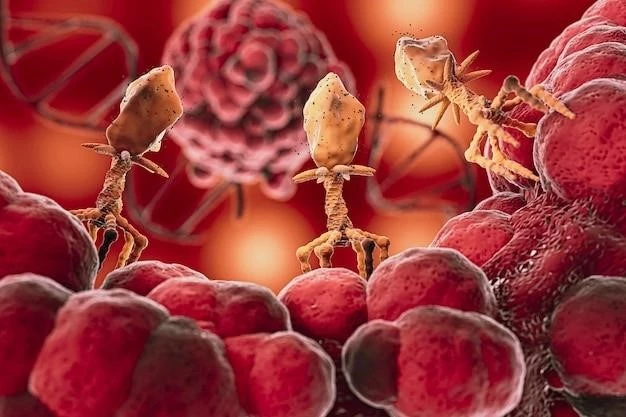Disease ⏤ Fructosemia, Hereditary
Fructosemia, Hereditary is a rare condition related to sugar processing, specifically affecting fructose metabolism, resulting from genetic disorders like Fructokinase or Aldolase B deficiency. This article delves into the intricate details of this metabolic disorder and its impact on childhood health.
Introduction to Fructosemia
Fructosemia, also known as hereditary fructose intolerance, is a rare hereditary disorder that impairs the body’s ability to metabolize fructose. This condition is typically caused by deficiencies in enzymes involved in fructose metabolism, such as Fructokinase and Fructose-1-phosphate aldolase. Essential fructosuria and Fructose-1-phosphate aldolase deficiency are specific types of hereditary fructose disorders.
The liver plays a crucial role in the metabolism of fructose, converting it into energy for the body to use. However, in individuals with hereditary fructose disorders, this process is disrupted, leading to various symptoms and complications. Understanding the genetic basis of these disorders is essential in diagnosing and managing the condition effectively.
Individuals with hereditary fructose disorders may experience symptoms like nausea, vomiting, abdominal pain, and hypoglycemia after consuming fructose-containing foods. Diagnosis often involves genetic testing, dietary evaluations, and liver function tests to assess the impact of the condition on overall health. Proper management strategies, including a fructose-restricted diet and close monitoring of sugar intake, are crucial in minimizing symptoms and maintaining optimal health.
Types of Hereditary Fructose Disorders
Hereditary fructose disorders encompass several distinct conditions that affect the body’s ability to process fructose efficiently. Essential fructosuria is a benign condition where the enzyme fructokinase is deficient, leading to the inability to metabolize fructose into fructose-1-phosphate.
Fructose-1-phosphate aldolase deficiency, also known as hereditary fructose intolerance, is a more severe form of the disorder. In this condition, the enzyme aldolase B is deficient, impairing the breakdown of fructose-1-phosphate into glyceraldehyde and dihydroxyacetone phosphate.
Both essential fructosuria and fructose-1-phosphate aldolase deficiency can result in symptoms like abdominal pain٫ bloating٫ and hypoglycemia after consuming fructose-containing foods. These hereditary fructose disorders require careful management strategies to prevent complications and promote overall well-being.
Understanding the specific types of hereditary fructose disorders is crucial in tailoring treatment plans to address the unique challenges faced by individuals with these conditions. Genetic testing and close monitoring of symptoms are essential in the diagnosis and management of hereditary fructose disorders, ensuring that individuals receive appropriate care to maintain their health.
Understanding Fructose Metabolism
Fructose metabolism is a complex biochemical process in which fructose is converted into energy to fuel various cellular functions. When fructose is consumed, it is primarily metabolized in the liver through a series of enzymatic reactions. Fructokinase is the enzyme responsible for converting fructose into fructose-1-phosphate, a crucial step in fructose metabolism.
Fructose-1-phosphate aldolase, specifically aldolase B, plays a vital role in further breaking down fructose-1-phosphate into glyceraldehyde and dihydroxyacetone phosphate. These intermediates are then utilized in glycolysis to produce energy in the form of adenosine triphosphate (ATP).
In individuals with hereditary fructose disorders, mutations in genes encoding enzymes like Fructokinase or aldolase B lead to deficiencies that disrupt the normal fructose metabolism pathway. As a result, fructose cannot be effectively converted into energy, leading to a buildup of toxic byproducts and metabolic disturbances.
Understanding the intricacies of fructose metabolism and identifying the specific enzymatic defects involved in hereditary fructose disorders are essential for accurate diagnosis and targeted treatment approaches. By elucidating the molecular mechanisms underlying these conditions, researchers and healthcare professionals can develop better strategies to manage the symptoms and complications associated with impaired fructose metabolism.
Genetic Basis of Hereditary Fructose Disorders
Hereditary fructose disorders, such as essential fructosuria and fructose-1-phosphate aldolase deficiency, have a well-defined genetic basis linked to mutations in specific genes encoding key enzymes involved in fructose metabolism. Deficiencies in Fructokinase and aldolase B are typically inherited in an autosomal recessive manner, meaning that an individual must inherit two defective copies of the gene to manifest the disorder.
For essential fructosuria, mutations in the Fructokinase gene (KHK) result in the inability to efficiently metabolize fructose. Similarly, fructose-1-phosphate aldolase deficiency is caused by mutations in the ALDOB gene, leading to impaired breakdown of fructose-1-phosphate.
Genetic testing plays a crucial role in identifying these mutations and confirming a diagnosis of hereditary fructose disorders. Understanding the specific genetic defects responsible for these conditions enables healthcare professionals to tailor treatment strategies to manage symptoms effectively. Moreover, genetic counseling can provide valuable information to individuals and families regarding the risk of passing on the disorder to future generations.
Advances in genetic research have enhanced our understanding of the molecular mechanisms underlying hereditary fructose disorders, paving the way for targeted therapies and potential gene-based treatments. By unraveling the genetic basis of these conditions, clinicians can offer personalized care to individuals affected by hereditary fructose disorders, improving their quality of life and prognosis.
Symptoms and Diagnosis of Hereditary Fructose Disorders
Hereditary fructose disorders present with a spectrum of symptoms related to impaired fructose metabolism. Common manifestations include nausea, vomiting, abdominal pain, bloating, hypoglycemia, and liver dysfunction following the consumption of fructose-containing foods. In severe cases, affected individuals may experience lethargy, seizures, and failure to thrive.
Diagnosing hereditary fructose disorders involves a comprehensive evaluation that includes genetic testing to identify mutations in genes associated with Fructokinase or aldolase B deficiencies. Additionally, healthcare providers may conduct liver function tests, carbohydrate metabolism studies, and dietary assessments to assess the impact of fructose intolerance on overall health.
Early diagnosis is crucial in managing hereditary fructose disorders effectively and preventing complications. By recognizing the hallmark symptoms and performing the necessary diagnostic tests, healthcare professionals can initiate appropriate treatment strategies, such as adopting a fructose-restricted diet and monitoring sugar intake closely.
Individuals with hereditary fructose disorders may benefit from working closely with healthcare providers specializing in metabolic disorders to ensure proper management and minimize the risk of adverse events. By proactively addressing symptoms and implementing individualized care plans, individuals with hereditary fructose disorders can lead healthier lives and mitigate the impact of this rare genetic condition.
Management of Hereditary Fructose Disorders

The management of hereditary fructose disorders primarily revolves around dietary modifications and close monitoring of sugar intake. Individuals with these conditions are advised to follow a fructose-restricted diet, avoiding foods high in fructose such as fruits, honey, and certain vegetables. Instead, they may consume alternative sources of carbohydrates that are well-tolerated.
Consultation with a registered dietitian specializing in metabolic disorders is essential to create a personalized meal plan that meets the individual’s nutritional needs while avoiding fructose-rich foods. Monitoring sugar intake, reading food labels diligently, and being vigilant about hidden sources of fructose in processed foods are essential aspects of managing hereditary fructose disorders.
In cases where symptoms persist despite dietary modifications, healthcare providers may recommend additional treatments to alleviate specific symptoms. This may include supportive therapies to address liver dysfunction, hypoglycemia, or gastrointestinal issues arising from hereditary fructose intolerance.
Regular follow-up appointments with a multidisciplinary healthcare team comprising physicians, dietitians, and genetic counselors are vital in monitoring the individual’s progress and adjusting management strategies as needed. Continuous education about the condition, its dietary implications, and potential complications is crucial in empowering individuals with hereditary fructose disorders to manage their health effectively.
Impact on Childhood Health
Hereditary fructose disorders can have a significant impact on the health and development of children affected by these rare genetic conditions. The inability to efficiently metabolize fructose can lead to a range of symptoms that may affect a child’s overall well-being and growth.
Children with hereditary fructose disorders may experience recurrent episodes of abdominal pain, nausea, and vomiting, which can interfere with their nutritional intake and quality of life. Additionally, the risk of hypoglycemia following fructose consumption can impact energy levels and cognitive function in affected children.
The restrictive nature of managing hereditary fructose disorders, particularly with a fructose-restricted diet, can pose challenges in providing adequate nutrition for growing children. It is essential for healthcare providers to work closely with parents and caregivers to ensure that children receive the necessary nutrients while avoiding foods that can trigger adverse reactions.
Early diagnosis and effective management of hereditary fructose disorders in childhood are crucial in minimizing the impact on a child’s health and optimizing their growth and development. Regular monitoring, tailored dietary interventions, and proactive symptom management can help children with these conditions lead healthier and more fulfilling lives.
Research and Future Directions
Ongoing research in the field of hereditary fructose disorders aims to elucidate the underlying molecular mechanisms, identify novel therapeutic targets, and enhance diagnostic capabilities for these rare genetic conditions. Advances in genetic testing technologies have enabled more precise identification of mutations associated with Fructokinase and aldolase B deficiencies, facilitating early diagnosis and personalized treatment approaches.
Future directions in research focus on exploring innovative strategies to address the challenges posed by hereditary fructose disorders, such as developing targeted therapies that restore fructose metabolism function or mitigate the adverse effects of enzyme deficiencies. Gene therapy and enzyme replacement therapies represent promising avenues for potentially correcting the underlying genetic defects responsible for these conditions.
Furthermore, collaborative efforts between clinicians, researchers, and pharmaceutical companies are essential in driving forward the development of novel treatment modalities for hereditary fructose disorders. Clinical trials investigating the safety and efficacy of new therapeutic interventions are critical steps toward improving outcomes and enhancing the quality of life for individuals with these rare metabolic conditions.
By fostering interdisciplinary research collaborations and leveraging cutting-edge technologies, the medical community strives to enhance our understanding of hereditary fructose disorders and pave the way for more effective management strategies. Ultimately, the goal is to provide individuals affected by these rare genetic conditions with better treatment options and improved prognoses, marking significant progress in the field of metabolic disorders.
